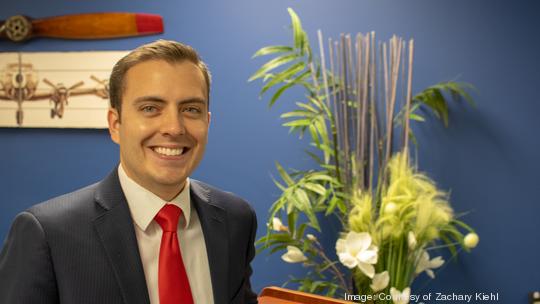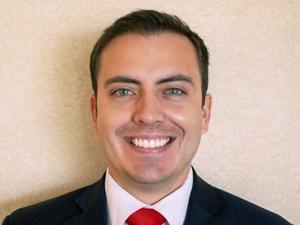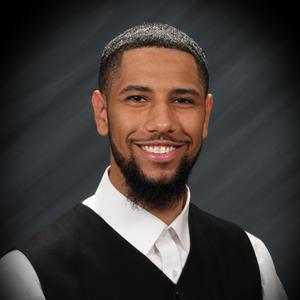
Sentinel Occupational Safety, a technology startup based in Fairborn, recently raised $2.1 million in venture capital to expand the development of its platform for industrial safety and personal health monitoring. Following its successful raise, Sentinel Co-Founder and CEO Zachary Kiehl offered tips to Dayton Business Journal readers about when to go after VC dollars, what to do after receiving the money, how to raise additional funds and other advice for local startups looking to accelerate their business.
What advice would you give to startups that are looking to raise venture capital?
First and foremost, there is no established blueprint. Every company is unique, and that affects how you would approach any sort of capital requirement need. Once you know what you're trying to accomplish, you come up with your business plan and your pitch deck — the basic things — and start doing due diligence on things like incorporating your business and having an entity that can actually receive the money. There's definitely some processes, and there's all sorts of checklists and things online that can help with that.
Once you've checked all those boxes, then it becomes a matter of introductions and to some extent, a numbers game. You hear all these stories about successful entrepreneurs who were rejected the first 50 or 100 times, so everybody meets their fair share of 'nos.' So be prepared for people to tell you they're not buying in.
Ultimately it's a lot of networking, cold calls and emails. The worst case scenario is they say 'no,' or you never hear from them. If you can get over rejection and keep making contacts, it can just take one successful meeting, or one that can ultimately lead to another investor referral. So it's really about establishing yourself within a network, getting an introduction and then ultimately it's up to you to nail the pitch and explain why your company is worth the investment.
What's the next step after successfully raising venture capital?
After you get people to actually say 'yes,' that's when the real work begins. You have to develop your 'burn rate,' which is to say when you start making money as opposed to just burning it. Most venture-backed companies aren't profitable for quite some time, so it's about understanding how much is being spent on personnel, rent, equipment, things like that. Everything costs more money and takes longer than anticipated, so try to plan conservatively and execute aggressively. Identify your milestones, what your investors are going to care about like revenue, user growth, your intellectual property portfolio — whatever it is — then set those milestones immediately after you raise and keep yourself accountable.
When should startups start looking to raise more funding?
Fundraising is not a one-and-done. It is a continual process, so you want to start as soon as you close out your previous round. Start reaching out to folks because the best time to talk to investors is when you don't need the money. Again, it's really a continual process, but I would say in general, plan for three-to-six months. If you think you're going to need, say $5 million a year from now, you should start working on that now and definitely six months within six months.
Are there any other tips or advice you can offer?
My last piece of advice is that venture capital fundraising is not needed all the time. Sometimes it certainly is, but sometimes folks are so obsessed with raising capital that they forget the most important aspect of all, which is to build a high-growth and sustainable business. Capital is certainly a tool, but it comes with a lot of strings attached. You constantly have to remind yourself to keep building products that customers are willing to pay for. And if you do that well enough, the funding situation will take care of itself.
Founded in 2020, Sentinel personalizes safety monitoring through sensors, software and artificial intelligence to provide an “intelligent guardian” for those in risk-prone settings








